See the top reasons to attend Bleeding, Thrombosis, and Vascular Liver Diseases as highlighted by our faculty
 Stephen Caldwell, MD, is a hepatologist specializing in a nonalcoholic steatohepatitis (NASH), including its relationship to so-called cryptogenic cirrhosis, ethnic and familial relationships and the role of mitochondrial dysfunction in the disease. He and his colleagues pioneered work on cellular ballooning and the role of small fat droplets in NASH and have also worked extensively with cyanoacrylates in the treatment of gastric variceal bleeding. He is overseeing a number of treatment trials for NASH and a variety of other liver diseases and is closely involved with a network of physicians and scientists working with coagulation disorders in liver disease.
Stephen Caldwell, MD, is a hepatologist specializing in a nonalcoholic steatohepatitis (NASH), including its relationship to so-called cryptogenic cirrhosis, ethnic and familial relationships and the role of mitochondrial dysfunction in the disease. He and his colleagues pioneered work on cellular ballooning and the role of small fat droplets in NASH and have also worked extensively with cyanoacrylates in the treatment of gastric variceal bleeding. He is overseeing a number of treatment trials for NASH and a variety of other liver diseases and is closely involved with a network of physicians and scientists working with coagulation disorders in liver disease.
Dr. Caldwell is a native of Statesville, NC. He earned his medical degree from Wake Forest University Medical School. Dr. Caldwell completed his medical residency at a University of Virginia-affiliated program in Roanoke and Salem, VA, where he served as chief resident in his final year. He completed a gastroenterology fellowship program at UVA and a hepatology fellowship at the University of Miami. In 1992, he joined the faculty at UVA, helping to develop the hepatology program.
Now a professor of medicine in the Division of Gastroenterology and Hepatology, Dr. Caldwell is board-certified in internal medicine and gastroenterology.
What can our delegates expect to learn from the session Bleeding & invasive procedures in patients with liver disease that you are chairing at the event?
Procedure-related bleeding often leaves an indelible image on physicians. What is the contribution of hemostatic mechanisms to bleeding in liver disease as opposed to portal hypertension? What strategies can be used to measure and mitigate the risk? We’ll be discussing this and more during this session.
Why should people attend this event?
For a closer look at areas of agreement, controversy, debate, and uncertainty in the field of hemostasis in the liver disease and the safe management of bleeding risk with invasive procedures.
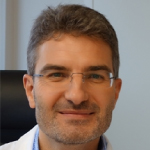 Andrea De Gottardi is head of the Gastroenterology and Hepatology Unit at Ente Ospedaliero Cantonale (www.eoc.ch), full professor at the Faculty of Biomedical Sciences of Università della Svizzera italiana (https://www.biomed.usi.ch/en). He studied human medicine at the University of Lausanne and Heidelberg and graduated in 1994. After a residency in internal medicine and a PhD at the University of Berne, he moved to Geneva, where he specialized in gastroenterology and hepatology. Later, as a recipient of a Sheila Sherlock post-doc award from the European Association for the Study of the Liver (EASL), he joined the research group of the Hospital Clinic in Barcelona where he worked 2 years under the supervision of Professor Jaime Bosch, focussing on the complications of portal hypertension. Back to Bern, he contributed as associate professor and consultant hepatologist (leitender Arzt) at the Inselspital University Hospital in Berne to the development of the Liver Unit, before moving to his current position in 2019.
Andrea De Gottardi is head of the Gastroenterology and Hepatology Unit at Ente Ospedaliero Cantonale (www.eoc.ch), full professor at the Faculty of Biomedical Sciences of Università della Svizzera italiana (https://www.biomed.usi.ch/en). He studied human medicine at the University of Lausanne and Heidelberg and graduated in 1994. After a residency in internal medicine and a PhD at the University of Berne, he moved to Geneva, where he specialized in gastroenterology and hepatology. Later, as a recipient of a Sheila Sherlock post-doc award from the European Association for the Study of the Liver (EASL), he joined the research group of the Hospital Clinic in Barcelona where he worked 2 years under the supervision of Professor Jaime Bosch, focussing on the complications of portal hypertension. Back to Bern, he contributed as associate professor and consultant hepatologist (leitender Arzt) at the Inselspital University Hospital in Berne to the development of the Liver Unit, before moving to his current position in 2019.
He coordinates a multicentre project on thrombotic disorders of the liver and participates as a co-investigator in several international studies including the European reference Network on Rare Liver Diseases. He is member of the AASLD special interest group on portal hypertension and he serves as chair of the EASL-VALDIG Consortium (vascular liver disease group).
What can our delegates expect to learn from your presentation DOACS in cirrhosis: where are we? at the event?
DOACs are largely used and have replaced low molecular weight heparins and Vitamin K antagonists for many indications. What are the advantages and disadvantages to using DOACs in cirrhotic patients? Answer in my presentation!
Why should people attend this event?
One thing every hepatologist should know is how to safely prescribe DOACs and follow-up on them in patients with cirrhosis.
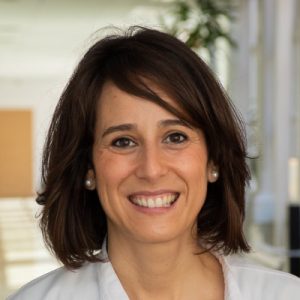 Virginia Hernández-Gea (MD, PhD) is an interventional Hepatologist working in the Liver Unit at Hospital Clinic-IDIBAPS (Barcelona). She is fully dedicated to the management of patients with portal hypertension and vascular liver diseases and performance of liver catheterization procedures including TIPS. She also runs a translational laboratory focused on the understanding of the regulation of liver microcirculation. She is vice secretary of VALDIG, faculty of Baveno and associate editor of Liver International.
Virginia Hernández-Gea (MD, PhD) is an interventional Hepatologist working in the Liver Unit at Hospital Clinic-IDIBAPS (Barcelona). She is fully dedicated to the management of patients with portal hypertension and vascular liver diseases and performance of liver catheterization procedures including TIPS. She also runs a translational laboratory focused on the understanding of the regulation of liver microcirculation. She is vice secretary of VALDIG, faculty of Baveno and associate editor of Liver International.
What can our delegates expect to learn from the sessions State of the art and Mechanisms of PVT in cirrhosis that you are chairing, and from your presentation Pathophysiology of PSVD at the event?
From this session, you will get an outstanding overview of the field with special emphasis in areas needing research and highlighting the new advances in the field.
Why should people attend this event?
Do you want the best possible update in the field of bleeding/hemostasis & vascular liver diseases? Join us for a unique networking opportunity, highly interactive program capturing new data and discussions about clinically relevant controversies!
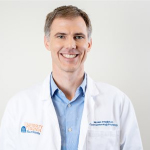 Dr. Nicolas Intagliata is an associate professor of medicine in the Division of Gastroenterology and Hepatology at the University of Virginia and is board-certified in internal medicine, gastroenterology and transplant hepatology. Dr. Intagliata grew up in Denver, attending the University of Colorado, Boulder for his undergraduate studies. He earned his medical degree from Wake Forest University in Winston-Salem, N.C., and then came to the University of Virginia to complete a residency in internal medicine and two fellowships — one in gastroenterology and hepatology and the other in transplant hepatology. He joined the UVA faculty in 2014. His areas of research interest include hemostasis and vascular disorders in patient with liver disease.
Dr. Nicolas Intagliata is an associate professor of medicine in the Division of Gastroenterology and Hepatology at the University of Virginia and is board-certified in internal medicine, gastroenterology and transplant hepatology. Dr. Intagliata grew up in Denver, attending the University of Colorado, Boulder for his undergraduate studies. He earned his medical degree from Wake Forest University in Winston-Salem, N.C., and then came to the University of Virginia to complete a residency in internal medicine and two fellowships — one in gastroenterology and hepatology and the other in transplant hepatology. He joined the UVA faculty in 2014. His areas of research interest include hemostasis and vascular disorders in patient with liver disease.
What can our delegates expect to learn from the session Clinical management of PVT in cirrhosis that you are chairing, and from your presentation Invasive procedures in patients with liver disease: How to assess risk of complications? at the event?
Come and learn about the state-of-the-art approaches in the treatment of PVT in cirrhosis. From the role of anticoagulation to the use of direct oral anticoagulants and finishing with mechanical solutions from radiology & surgical perspectives.
What are the strength and weaknesses of currently available tests to bleeding in liver disease patients prior to invasive procedures? What are the current updated society guidelines on this? Come to the presentation for answers
Why should people attend this event?
First, the most up-to-date research in hemostasis and vascular diseases in patients with liver disease will be presented. Secondly, it is a great opportunity to collaborate and build relationships for future research projects. Don’t miss out!
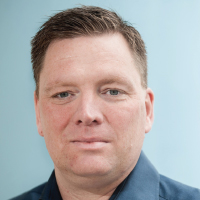
Ton Lisman is a biochemist with a profound interest in translational clinical research. He received his PhD at the Department of Hematology from the University Medical Center Utrecht in The Netherlands on a thesis on the mechanism of action of recombinant coagulation factor VIIa in 2002. Since 2007, he works at the Surgical Research Laboratory and the Section of Hepatobiliary Surgery and Liver Transplantation at the Department of Surgery of the University of Groningen in The Netherlands. He was appointed full professor of Experimental Surgery in 2015. He serves as associate editor for the Journal of Thrombosis and Hemostasis and as senior associate editor for Seminars in Thrombosis and Hemostasis.
His research interests include hemostasis in liver disease and liver surgery, the role of hemostatic components in damage and repair of liver tissue, and the role of the fibrinolytic system in thrombosis. These topics are studied in close collaboration with local and international clinical partners, which include surgeons, hepatologists, hematologists, intensivists, and anethesiologists.
What can our delegates expect to learn from the session Novelties in coagulation in liver diseases that you are chairing, and from your presentation Coagulation status of patients with cirrhosis: after 20 years of research, do we have the answer? at the event?
This session is your one-stop shop for recent studies on the role of coagulation in liver failure progression, hemostatic activity in ascitic fluid and the risk benefit ratios of prohemostatic agents. Don’t miss it!
After 20 years of research, how has combining laboratory studies with clinical observations led to a more rational approach to prevention and treatment of bleeding and thrombosis in patients with cirrhosis? Come along to explore the knowledge gaps and thoughts for future studies.
Why should people attend this event?
This monothematic conference is a must for all clinicians and scientists interested in prevention or treatment of bleeding and thrombosis in liver disease patients.
As well as updating people on the cutting-edge scientific approaches currently being utilised to understand the mechanisms of human NASH, this meeting will also discuss how we use this rich, new information to guide the design of relevant and potent novel therapies for NASH.
 Professor Lohse studied medicine and philosophy in Göttingen, London and Boston from 1978 – 1984 and received his Doctorate in 1987 at the University of Marburg. After a two-year research stay at the Weizmann Institute of Science in Israel he worked both clinically and in research at the Johannes Gutenberg-University Mainz specializing in gastroenterology, clinical immunology and infectious diseases. His special research interest is liver diseases, immune regulation and autoimmunity. Since January 2005 he is Director of the I. Department of Medicine at the University Medical Centre Hamburg-Eppendorf.
Professor Lohse studied medicine and philosophy in Göttingen, London and Boston from 1978 – 1984 and received his Doctorate in 1987 at the University of Marburg. After a two-year research stay at the Weizmann Institute of Science in Israel he worked both clinically and in research at the Johannes Gutenberg-University Mainz specializing in gastroenterology, clinical immunology and infectious diseases. His special research interest is liver diseases, immune regulation and autoimmunity. Since January 2005 he is Director of the I. Department of Medicine at the University Medical Centre Hamburg-Eppendorf.
He serves in many scientific boards, is editor or associate editor of various clinical and scientific journals and member of the Hamburg Academy of Sciences. His department has a very active research programme including a collaborative research centre (SFB 841) on liver inflammation, a clinical research unit (KFO 306) on primary sclerosing cholangitis, a research unit on emerging infections and one on rare diseases. He was chairman of the EASL Clinical Practice Guidelines on Autoimmune Hepatitis published in 2015.
What can our delegates expect to learn from your presentation Role of European Regulatory Agencies in vascular liver diseases at the event?
There is a scarcity of knowledge when it comes to rare disease diagnosis and treatment, restricting the access to expert care. How can the EU cross-border directive improve chances for better care for patients with vascular liver diseases? Join me to find out.
Why should people attend this event?
If you want to meet real experts in this rapidly moving field, gain novel insights into new therapies, then this is the place to be.
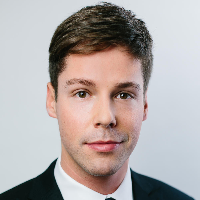
Dr. Mandorfer is a central member to both the Vienna HIV & Liver Study Group and the Vienna Hepatic Hemodynamic Lab. He has published numerous articles on HIV/HCV coinfection and complications of cirrhosis, including one of the key studies on the use of non-selective β blockers in patients with advanced cirrhosis.
Dr. Mandorfer has received the National Scholar Award and the Oral Free Paper Prize of the United European Gastroenterology, the Wewalka Prize (Austrian Society of Gastroenterology and Hepatology), as well as the Skoda Prize (Austrian Society of Internal Medicine).
What can our delegates expect to learn from your presentation Fibrinolytic activity of ascites at the event?
I’ll be giving you a summary of the activation of coagulation and fibrinolysis in both ascites and plasma of cirrhotic patients. You’ll also see novel data on the role of tissue of tissue factor-exposing extracellular vesicles in ascitic fluid.
Why should people attend this event?
The previous meetings in Rome and Groningen were remarkable and key in fostering my scientific interest in this field. With the support of EASL this time, the learning experience will be even better! Don’t miss this chance to update your knowledge and exchange ideas on this hot topic with top experts in the field!
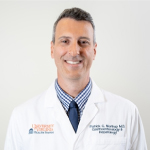 With training in epidemiology, statistics, and economic outcome modeling, Dr. Northup is interested in cost-effectiveness modeling and health policy. He is active in both investigator initiated and industry-sponsored clinical trials and translational research evaluating new therapies for viral hepatitis, spontaneous bacterial peritonitis, coagulation disorders in cirrhosis, hepatorenal syndrome, liver transplantation organ allocation, upper GI bleeding, and hepatocellular carcinoma. Dr. Northup also has regulatory and policy interests and is a former member of the University of Virginia, Institutional Review Board for Human Research. He is a consultant to the U.S. FDA and the U.S. National Institutes of Health and is the recipient of the 2007 American Association for the Study of Liver Diseases Jan Albrecht award for clinical research.
With training in epidemiology, statistics, and economic outcome modeling, Dr. Northup is interested in cost-effectiveness modeling and health policy. He is active in both investigator initiated and industry-sponsored clinical trials and translational research evaluating new therapies for viral hepatitis, spontaneous bacterial peritonitis, coagulation disorders in cirrhosis, hepatorenal syndrome, liver transplantation organ allocation, upper GI bleeding, and hepatocellular carcinoma. Dr. Northup also has regulatory and policy interests and is a former member of the University of Virginia, Institutional Review Board for Human Research. He is a consultant to the U.S. FDA and the U.S. National Institutes of Health and is the recipient of the 2007 American Association for the Study of Liver Diseases Jan Albrecht award for clinical research.
What can our delegates expect to learn from your presentation Cryoprecipitate to prevent bleeding in critically ill cirrhosis patients at the event?
Why should people attend this event?
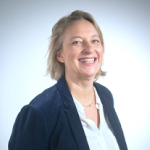 Aurélie Plessier is a full time Hepatologist in the liver unit, Hopital Beaujon. She graduated in June 2000 as a Gastroenterology and Hepatology specialist, at Paris Diderot University. She specialized in Hepatology with a fellowship in Hopital Beaujon hepatology in 2000-2002 under the guidance of Professor Dominique Valla. She then trained in Vascular liver diseases, assisting Professor Dominique Valla in the coordination for the European network for vascular disorders of the liver EN-Vie project (QLG1-CT-2002-0168), and worked as a hepatologist consultant in Hopital Henri Mondor, under the guidance of Professor Ariane Mallat. She is currently in charge of the Coordination of the national referral centre for vascular disorders of the liver (centre de reference des maladies vasculaires du foie). She is also a member of ERN rare liver, and Filfoie (French network for rare liver diseases) responsible for vascular liver diseases. She is a member of the European consortium on vascular liver diseases (VALDIG) steering committee with an ERN-liaison role. Her clinical research interests are portal hypertension and vascular diseases of the liver. Her main original contributions are: therapeutic management in Budd Chiari syndrome; pregnancy in vascular liver diseases (Budd-chiari, and portal vein thrombosis). She is a member of the European (EASL) and French (AFEF) Associations for the Study of the Liver, and French Associations for the Study of the Liver and Gastroenterology (SNFGE), and is a past president of the French portal hypertension club.
Aurélie Plessier is a full time Hepatologist in the liver unit, Hopital Beaujon. She graduated in June 2000 as a Gastroenterology and Hepatology specialist, at Paris Diderot University. She specialized in Hepatology with a fellowship in Hopital Beaujon hepatology in 2000-2002 under the guidance of Professor Dominique Valla. She then trained in Vascular liver diseases, assisting Professor Dominique Valla in the coordination for the European network for vascular disorders of the liver EN-Vie project (QLG1-CT-2002-0168), and worked as a hepatologist consultant in Hopital Henri Mondor, under the guidance of Professor Ariane Mallat. She is currently in charge of the Coordination of the national referral centre for vascular disorders of the liver (centre de reference des maladies vasculaires du foie). She is also a member of ERN rare liver, and Filfoie (French network for rare liver diseases) responsible for vascular liver diseases. She is a member of the European consortium on vascular liver diseases (VALDIG) steering committee with an ERN-liaison role. Her clinical research interests are portal hypertension and vascular diseases of the liver. Her main original contributions are: therapeutic management in Budd Chiari syndrome; pregnancy in vascular liver diseases (Budd-chiari, and portal vein thrombosis). She is a member of the European (EASL) and French (AFEF) Associations for the Study of the Liver, and French Associations for the Study of the Liver and Gastroenterology (SNFGE), and is a past president of the French portal hypertension club.
What can our delegates expect to learn from your presentation Management of portal vein cavernoma at the event?
Concerned about patients with portal cavernoma? Want to know the causes, outcomes, complications and how to manage them? Then this presentation is for you.
Why should people attend this event?
We will be providing you with the expert knowledge needed to manage bleeding and thrombosis, the two main complications in liver vascular disease.
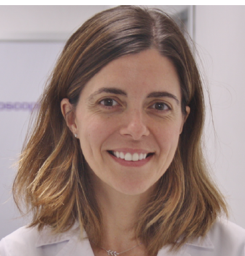
Dr Angela Puente achieved the Bachelor of Medicine and Surgery in 2005 and she is Specialist in Gastroenterology and Hepatology by Hospital Universitario Marqués de Valdecilla, Santander (Spain) . After that she started her fellowship in portal hypertension and complications of cirrhosis in Hospital Santa Cruz y San Pablo, Barcelona 2010-2011). PhD (2014), with doctoral thesis entitled: “Prevention of gastrointestinal bleeding. Endoscopic, pharmacological and metabolic factors”. Between 2019-2020 she was recognized with a postdoctoral grant of the Spanish Association for the Study of the Liver, in the Internal Medicine department of Yale University, Connecticut (USA).
Also she has a Master of Hepatology expert, Alcalá University, September 2014 and she is a honorific collaborator professor in Health Sciences department, Cantabria University. Dr Angela Puente has published over 25 peer-reviewed articles and book chapters.
What can our delegates expect to learn from your presentation PSVD in patients treated with oxaliplatin at the event?
How do you manage PSVD in patients treated with oxaliplatin? We’ll be looking at how early diagnosis and treatment in dedicated liver units play a role.
Why should people attend this event?
Events like this definitely help improve our knowledge on non-cirrhotic portal hypertension!
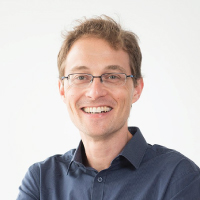 Pierre-Emmanuel Rautou (MD, PhD) is a clinical specialist in Hepatology with a PhD in vascular biology (2011). He is Professor of Hepatology at the University of Paris and Hôpital Beaujon (Clichy, France) since 2016. He is the head of the splanchnic hemodynamic laboratory at Beaujon Hospital (Clichy, France) since 2012. He is also leading an Inserm team dedicated to the study of the role of vessels in liver diseases, at the INSERM Unit 1149 (Paris Research Center on Inflammation).
Pierre-Emmanuel Rautou (MD, PhD) is a clinical specialist in Hepatology with a PhD in vascular biology (2011). He is Professor of Hepatology at the University of Paris and Hôpital Beaujon (Clichy, France) since 2016. He is the head of the splanchnic hemodynamic laboratory at Beaujon Hospital (Clichy, France) since 2012. He is also leading an Inserm team dedicated to the study of the role of vessels in liver diseases, at the INSERM Unit 1149 (Paris Research Center on Inflammation).
His research is focused on the role of vessels in liver diseases. Specifically, he is interested in primary vascular liver diseases (Budd-Chiari syndrome, portal vein thrombosis and porto-sinusoidal vascular disease), as well as in vascular involvement in common liver diseases development and complications.
Pierre-Emmanuel Rautou serves as secretary of the vascular liver disease interest group (VALDIG).
What can our delegates expect to learn from the session Vascular liver diseases that you are chairing at the event?
Hot topics in vascular liver disease? Recent developments in porto-sinusoidal vascular disease and portal vein cavernoma? I’m really looking forward the debates with the outstanding experts invited!
Why should people attend this event?
This monothematic will be a fantastic opportunity to get together and network after a long period devoid of face-to-faced meetings!
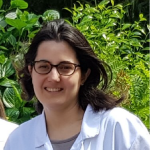 Marie Santin is a nurse coordinator at Beaujon Hospital since 2019. She works in the vascular disease reference centre in the hepatology department. She previously worked for 12 years in a digestive surgery department.
Marie Santin is a nurse coordinator at Beaujon Hospital since 2019. She works in the vascular disease reference centre in the hepatology department. She previously worked for 12 years in a digestive surgery department.
What can our delegates expect to learn from your presentation Impact of Nurse practitioners in management of patients with vascular liver diseases at the event?
When and how can a coordinating nurse help patient’s management? How useful is it for patients and doctors? For my view on these questions, come to the presentation.
Why should people attend this event?
What is the role of the coordinating nurse in the management of patients with vascular liver disease? How can they help care givers and patients alike? Join us to find out!
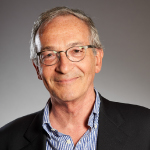 A professor of hepatology, Dominique Valla was the head of the liver unit in Hôpital Beaujon, from 1999 to 2013. He was the founding director of the French reference center for vascular diseases of the liver. Since 2013, he has been the founding coordinator of Département hospitalo-universitaire (DHU) UNITY, a network connecting university hospitals Paris-Nord Val-de-Seine), Université Paris Diderot, and the Centre de Recherche de l’Inflammation Paris-Montmartre, Inserm UMR1149) focusing on digestive diseases.
A professor of hepatology, Dominique Valla was the head of the liver unit in Hôpital Beaujon, from 1999 to 2013. He was the founding director of the French reference center for vascular diseases of the liver. Since 2013, he has been the founding coordinator of Département hospitalo-universitaire (DHU) UNITY, a network connecting university hospitals Paris-Nord Val-de-Seine), Université Paris Diderot, and the Centre de Recherche de l’Inflammation Paris-Montmartre, Inserm UMR1149) focusing on digestive diseases.
His clinical activities are focused on rare liver diseases. He is involved in clinical research on portal hypertension, complications of chronic liver diseases, and vascular liver diseases.
What can our delegates expect to learn from the session Debate: Guidelines on coagulation and liver diseases that you are chairing at the event?
Join this session as we breakdown the debate on coagulation and anti-coagulation in liver disease patients!
Why should people attend this event?
How else are you going to build your own opinion on current and frequent issues? Join the debates, join the event!
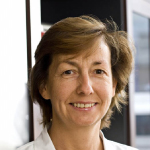 Dr. Valérie Vilgrain is Chair of the Department of Radiology at the University Beaujon Hospital and Professor of Radiology at the Université Paris Diderot, Sorbonne Paris Cité, France. Her major research interests are diagnostic and interventional imaging of the liver, pancreas and bile ducts with a special interest in multidetector CT and MR imaging and contrast-enhanced ultrasound, functional imaging (CT perfusion, dynamic contrast-enhanced MR imaging, diffusion-weighted MR imaging).
Dr. Valérie Vilgrain is Chair of the Department of Radiology at the University Beaujon Hospital and Professor of Radiology at the Université Paris Diderot, Sorbonne Paris Cité, France. Her major research interests are diagnostic and interventional imaging of the liver, pancreas and bile ducts with a special interest in multidetector CT and MR imaging and contrast-enhanced ultrasound, functional imaging (CT perfusion, dynamic contrast-enhanced MR imaging, diffusion-weighted MR imaging).
Dr. Vilgrain received her MD from the Rene Descartes University of Paris, Medical School, in 1985. She was resident in Radiology at Paris University and she completed a Fellowship in Radiology at the University Beaujon Hospital, Clichy, France (1987-1988).
Dr. Vilgrain is member of several international and national societies, such as RSNA (Radiological Society of North America), ESR (European Society of Radiology), ESGAR (European Society of Gastro Abdominal Radiology), EASL (European Association for the Study of Liver) and SFR (French Radiological Society). She was chairman of the Education Program Committee of the SFR annual meeting from 2000-2008 and has been Vice-Chairman of the Society since 2010. She is member of several ECR committees (EIBIR and EIBALL) and chairs the RSNA Regional Committee for Europe.
Dr. Vilgrain has published more than 350 peer-reviewed papers and has been a principal investigator of several large multicenter clinical trials, including the ongoing SARAH study of SIR-Spheres vs sorafenib in primary liver cancer.
She serves on the Editorial Board of Radiology (Associate Editor 2007-2012, Consultant to the Editor since 2012), Journal of Hepatology and Abdominal Radiology. She is a reviewer for Radiology, European Radiology, Liver Transplantation, Hepatology, Journal of Hepatology, European Journal of Radiology, JCAT, and European Journal of Cancer.
What can our delegates expect to learn from your presentation Deportalization and its consequences at the event?
Deportalization, a decrease in portal venous flow, is the direct result of portal vein obstruction or secondary to other vascular complications. What are the consequences of deportalization? Find out during my presentation!
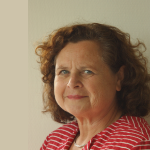 José Willemse studied social sciences at the University of Amsterdam (pedagogy and andragogy). Here the basis was laid for her interest in the work of patient organizations in all its facets and the role of patients in the care process for chronic diseases. She has been working for almost 30 years in the field of patient advocacy and patient participation in health care, as well as research and policy, both nationally and internationally.
José Willemse studied social sciences at the University of Amsterdam (pedagogy and andragogy). Here the basis was laid for her interest in the work of patient organizations in all its facets and the role of patients in the care process for chronic diseases. She has been working for almost 30 years in the field of patient advocacy and patient participation in health care, as well as research and policy, both nationally and internationally.
What can our delegates expect to learn from your presentation Patient empowerment in rare liver diseases at the event?
Patient empowerment is a modern term that fits the contemporary view of the patient's role in healthcare. But what is patient empowerment, what does it ask from the patient and the caregivers; how does patient empowerment relate to concepts such as self-management, patient central or patient-centred.
Why should people attend this event?
It is always inspiring to meet experts from various disciplines. Exchanging expertise and discussing answers to questions is so motivating to continue the fantastic work for patients with liver disease.

